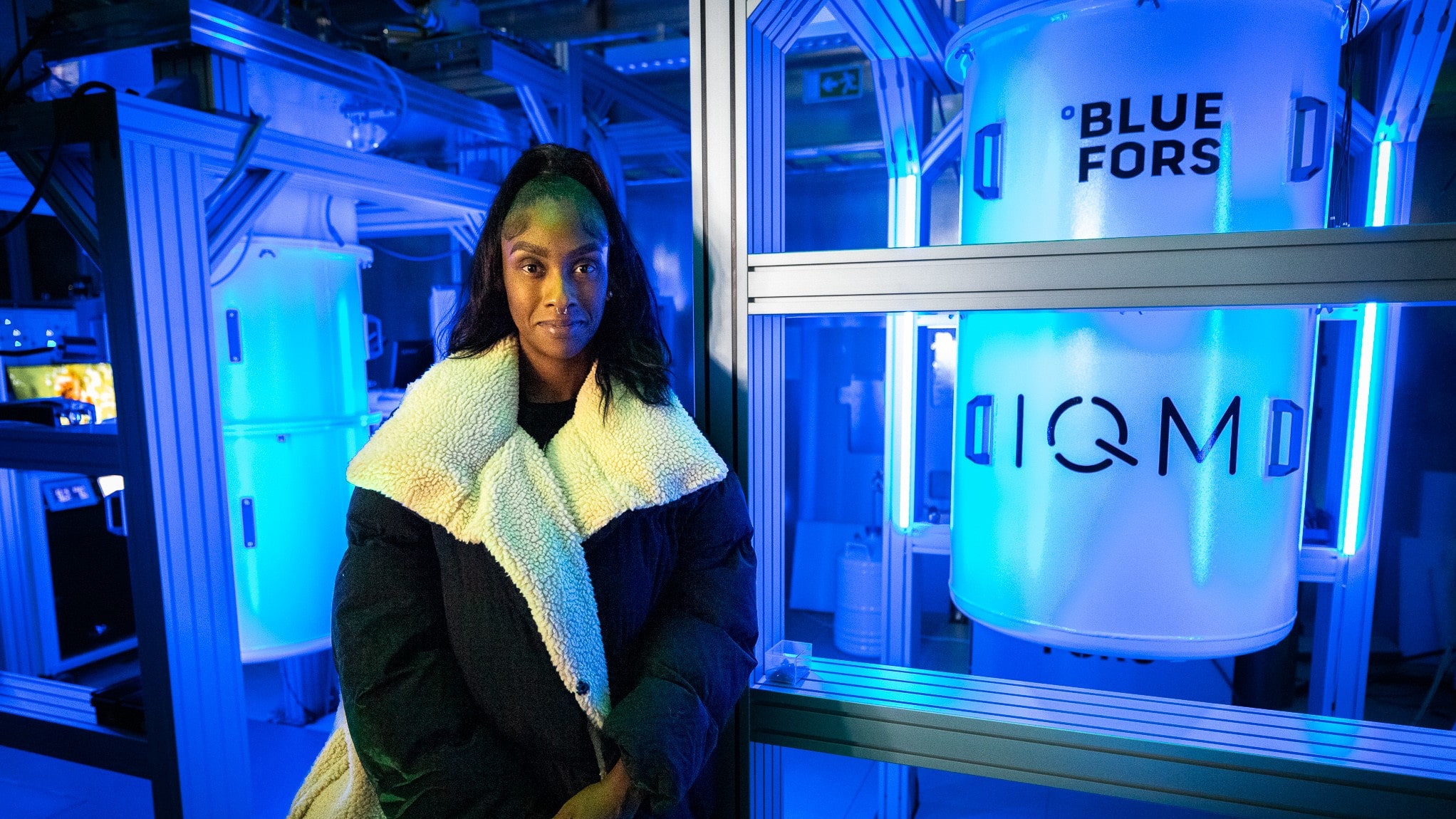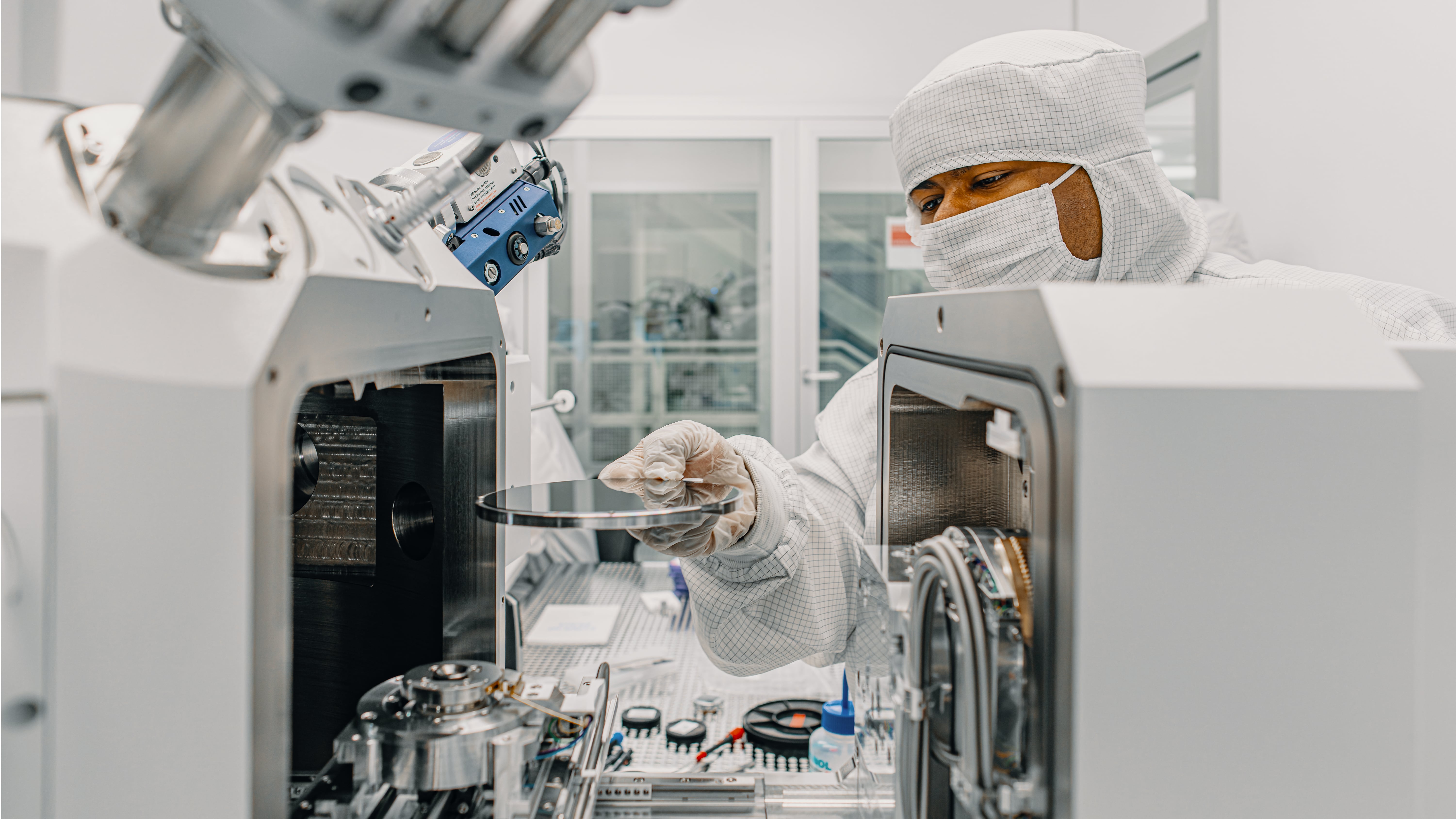Quantum computers give data center accelerators and HPC a leg up for R&D in Finland
The quest to build commercially useful quantum computers has been conquered

Let’s get one thing straight, quantum computers are, by no means, being built to replace existing computers.
It’s quite the contrary in the case of those designed by IQM, who are fast becoming the pan-European leader in building quantum computers.
In fact, IQM is also building quantum accelerators for data centers and super computers off the back of its plans to build Finland’s first commercial 54-qubit quantum processor with VTT Technical Research Centre of Finland.
IQM has already delivered an on-premise quantum computer, as TechRadar Pro learnt at Slush 2022 in Helsinki, Finland, that the goal is to commercialize quantum computers over the next five years.
The quantum computing mission is simple
IQM’s portfolio includes three products - quantum accelerators for HPC centers and supercomputing centers, on-premise quantum computers for research centers, universities, and government institutions, and application-specific quantum computers for industrial customers.
Ilkka Kivimäki, partner at European Venture Capital firm Maki.vc tells TechRadar Pro that these solutions can be used for positives and negatives.
“The negatives would be cracking the encryption, making efficient weapons, creating deep fakes so realistic that no one can tell the difference between what’s fake and what’s real, because the computing power is enormous,” he adds.
Are you a pro? Subscribe to our newsletter
Sign up to the TechRadar Pro newsletter to get all the top news, opinion, features and guidance your business needs to succeed!
IQM is one of the first companies to be a part of the geopolitical discussion of quantum computing since the very beginning, which Kivimäki seemed to think gives the company an advantage over its competitors.
“The party that gets the ball rolling on quantum developments will have a great advantage,” he continued.
““Europe is big enough to build its own expertise and computing power, because it’s guaranteed that we will not get the latest tech from Asia or US first. Quantum computing and what’s happening around it is one of those platform technologies that once the first aspects of it works, it opens a crazy amount of white space, and there are the application landscapes and potential use cases pending. We haven’t even figured out what the most interesting things are to come out of quantum computing yet.”

Getting ahead of quantum
IQM’s quantum computer facility used to house a government-owned data center full of traditional supercomputers, which made the transition to a quantum computing lab quite easy.
Its internal lab is used to test its R&D products, and IQM has a 20 qubit quantum computer already up and running in the facility in Finland, and it’s being used to solve problems and run algorithms.
The other quantum computers have smaller components used for IQM’s internal R&D, such as testing qubit designs and smaller electronics that will eventually be used for future quantum computers.
This was music to Prime Minister of Finland, Sanna Marin’s ears as she expressed deep concern about European countries having the know-how on new innovations such as quantum computers in order to avoid exposure to becoming vulnerable.

“Our society is digitalized and will be even more so in the future, and if we don’t build these capabilities right now and make sure we are investing in new technologies in digital solutions in Europe, then we will create vulnerabilities that will be crucial in the future if there is a crisis concerned with this,” said the Finnish Prime Minister on the stage of Slush 2022 in Helsinki.
“We have vulnerabilities already when we look at semiconductors, we are too dependent on Taiwan for example. We have to ensure that different democratic countries are building their capabilities and are investing in Europe and the US, etc.
“We have to make sure we have the technological know-how to build on new technologies such as quantum computers and not be dependent on China or other countries. This doesn’t mean that we should cut all trade or economic ties, but we have to make sure that we are not vulnerable to blackmail like what Russia is doing with energy.”
IQM focuses on hardware - building these physical systems and has successfully delivered the first Finnish quantum computer, which is owned by the VTT Technical Research Center of Finland. IQM has delivered the 5 qubit system and is currently testing the 20 qubit system.
Finland’s Prime Minister went on to say that she plans to make sure that the country isn't making the same mistakes with technology that has previously been made with energy and medical supplies.
“We should be open and honest in noticing the mistakes that have already made. In Finland, we thought that creating these close economic connections with other countries would prevent war, because it would cost too much. However, we didn’t notice that the Russian logic does not think like we do,” she added.
“I fear that we are making the same mistakes with technology and digital solutions. We should make sure we have all trading issues solved within the democratic countries and not be dependent on authoritarian regimes.”

What can come of quantum?
Using its proprietary method of extracting information from quantum devices, Finnish software company Algorithmiq entered into an engagement with IBM to progress in its exploration of quantum algorithms that attempt to solve complex issues in life sciences.
At Slush, the company revealed it will be able to demonstrate useful quantum advantage as early as next year.
It’s clear that these fabrication facilities dedicated to quantum processors will accelerate R&D and innovation and support growing global demand across a wide range of industries, and will increase microelectronics fabrication capacity to keep pace with the dramatic technology shifts underway within national quantum programs and high-performance computing centers.
- Boost your business with the best cloud storage services around

Abigail is a B2B Editor that specializes in web hosting and website builder news, features and reviews at TechRadar Pro. She has been a B2B journalist for more than five years covering a wide range of topics in the technology sector from colocation and cloud to data centers and telecommunications. As a B2B web hosting and website builder editor, Abigail also writes how-to guides and deals for the sector, keeping up to date with the latest trends in the hosting industry. Abigail is also extremely keen on commissioning contributed content from experts in the web hosting and website builder field.